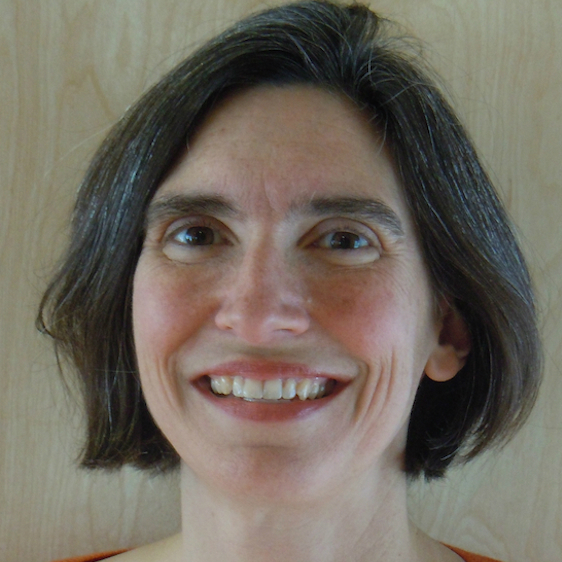Advertisement
Yes, I Got Tenure — And A Lot Of Grief Along The Way

A few days back, I received a phone call that was decades in the making. “It’s official. You are now a tenured full professor.”
At age 46, I will break no records with this promotion, but the validation has been sweet. I’ve reveled in the moment. At the same time, I’ve found myself reflecting on the journey. Along with memories of support from outstanding mentors and friends, I’m reminded of the headwinds faced by me and my female peers.
The slow climb began at 24, when I announced that I would head to Harvard to study economics. “What’s wrong, Ellen, can’t you find a husband here in Chicago?” offered a colleague I barely knew on an endless elevator ride to my 23rd floor office. While searching fruitlessly for a witty comeback, all I could think was, “I can’t believe he just said that out loud.”
To be sure, such attitudes rarely surfaced during my first four years of graduate school. At Harvard, I was one of five women in a class of 40 doctoral students. Gender was not an issue, even in a department dominated by male faculty and students. Blunt but helpful feedback was delivered in equal measure to men and women. Mentors returned my dissertation chapters with detailed comments only hours after receiving them. They were rooting for me to succeed.
This made it all the more surprising to see things change virtually overnight once I was married. When offering me my first position at Harvard Medical School, my female department chair, a trailblazing founder of a highly successful department admitted, “You are our second choice because we thought you’d follow your husband.” She could not imagine that my spouse would follow me to Boston to support my career, as he eventually did.
On hearing that I was expecting a second child, my chair blurted out, 'Oh no!' before quickly regaining her composure.
And if marriage was a game changer, motherhood seemed poised to take women off the playing board entirely. On hearing that I was expecting a second child, my chair blurted out, “Oh no!” before quickly regaining her composure. Nine months pregnant, sitting next to the dean of faculty, a physician and mother of two grown children, I pressed her, “I was surprised to see no maternity leave policy exists for the medical school. Why is that?” The dean responded with no hint of irony, “You know, I just returned from China where women are afraid to get pregnant because they might be fired.” The message was clear — I should consider myself lucky to have a job.
Motherhood’s role in my career struggles has waned as my kids have grown, but looking back, I realize my marriage continues to color others’ perceptions. When my husband and I moved to Hanover to join the faculty at Dartmouth College, acquaintances could not resist asking if I was “following my husband.” When being introduced to new colleagues, it stung when my credentials often ended with “wife” while my husband’s introduction always included “faculty” or “professor.” Did no one notice that we held the same degree from the same institution, and even the same academic title? I thought I might have imagined this automatic downgrading of my accomplishments. But several well-publicized slights underscore that even the profession’s most famous female economists are relegated to back seat roles in relation to their male economist partners.
Advertisement
Looking back, it can be tempting to dismiss these experiences as minor annoyances. After all, I got tenure right? They didn’t stop me. More broadly, of the four women in my Harvard cohort who earned their Ph.D., three of us are now tenured full professors at major research institutions. We are mothers. We are wives. We have achieved things our mothers could not fathom, and I expect our daughters will do the same. Broader trends for working women bear out steady progress, even as stubborn gender gaps remain.
These last 22 years could have been far richer without countless digs, deliberate or otherwise, eroding my confidence.
At the same time, it would be a mistake to say that my experiences didn’t matter. Of course, they are a far cry from the type of sexual harassment allegations that all too often make headlines today. Still, while the hundreds of small slights along the way — almost always unintended — may not have held me back, it’s hard to imagine that others were not pushed off the career track. Consider that, in my field of economics, women have represented a stable one third of new PhDs since 1997, but under 25 percent of associate professors and 12 percent of full professors were women in 2014 partly due to this “leaky pipeline.”
Perhaps more important, sexist assumptions degrade our daily experience. I’m proud of my achievements, but quality of life matters deeply. These last 22 years could have been far richer without countless digs, deliberate or otherwise, eroding my confidence. Some of the obviously sexist statements I heard as a young adult would rarely happen today, but persistent double standards demand our vigilance. We’d do well to subject our assumptions to the “man” test. For example: “Men should not have children until they have tenure.” An obvious fail.
Ironically, I just had an experience that drove home how fluid gender roles can be — as well as offering reasons for optimism. When I recently told my 12-year-old daughter that I’d be appearing on a panel moderated by Bill Clinton, she furrowed her brow then looked up at me: “Is that Hillary’s husband?”
